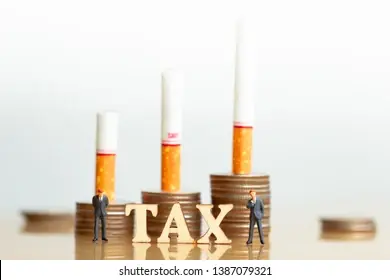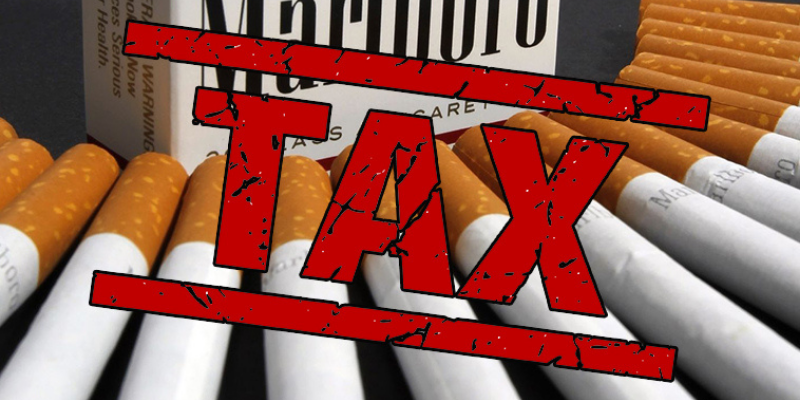
Tobacco tax reforms direly needed to save lives boost economy.

Introduction
Tobacco represents one of the most significant challenges confronting the world today. The impact of tobacco and smoking on global health is considerable. An estimated 1.3 billion people partake in tobacco consumption, with the majority residing in low- and middle-income countries. Each year, tobacco-related illnesses account for more than 8 million premature deaths, imposing an economic cost of at least US$1.4 trillion. Additionally, the risks associated with tobacco use are not limited to smokers; secondhand smoke exposure contributes to the deaths of nearly 400,000 women annually.
Pakistan use of Tobacco
In 2022, Pakistan recorded 25.4 million individuals aged 15 and above who utilized tobacco products, positioning the country as having the seventh largest population of tobacco users worldwide. In 2022, Pakistan's production of unmanufactured tobacco reached approximately 133.6 thousand tons, representing around 2.3% of the total global output of 5.8 million tons. This achievement ranked Pakistan as the seventh largest tobacco producer worldwide. In comparison to 2010, when the country produced roughly 119.3 thousand tons of unmanufactured tobacco, there was an increase of 11.9% by 2022.
Illegal trade of Tobacco in Pakistan
The illegal cigarette trade in Pakistan constituted 23.1 percent of the overall market. Cigarettes manufactured locally that lack the tax authority's stamp are classified as illicit and represent 10.4 percent of the total quantity of packs. These figures are stated by WHO. Estimated data suggests that the illegal cigarette trade in Pakistan has experienced significant fluctuations, starting at 18.0% in 2008 and steadily rising to a peak of 36.0% in 2020, followed by a slight decrease to 33.1% in 2022.

Media and Entertainment Industry need stop promoting smoking.
The tobacco industry employs various strategies to appeal to children and young people, misleading them to support narratives that oppose taxation on tobacco products. By utilizing celebrity endorsements, the industry may shape perceptions of these products as acceptable. Historically, tobacco companies have been known to financially incentivize film studios and actors to showcase their products. The tobacco and related sectors increasingly target children and adolescents through advertising strategies such as sponsorships and influencer marketing, directly endangering their health. Since 2022, the Indian media landscape has witnessed a notable shift, exemplified by renowned Bollywood actor Akshay Kumar participating in a public awareness campaign. This initiative aims to discourage the financial expenditure associated with smoking, encouraging individuals to redirect those funds towards more meaningful purchases, such as gifts for their spouses or children.
Required Tax reforms for Tobacco
The biggest issue Pakistan is facing is illegal trade of Tobacco and It’ s increasing year on year base because people know how exploit the system and incompetence of FBR. Therefore, real time track trace system can help Pakistan reduce the illegal trade of Tobacco. Moreover, experts assert that the existing two-tiered tobacco taxation framework permits the tobacco industry to diminish the effectiveness of tax hikes. By proactively increasing prices prior to budget disclosures, the industry undermines the intended public health advantages. The lack of taxation on smokeless tobacco items like Naswar, coupled with the limited regulation of nicotine pouches, further complicates the situation, creating gaps that enable the industry to reach consumers through alternative means. In light of these challenges, the seminar emphasized the necessity for a comprehensive, long-term taxation strategy that guarantees fair treatment of all tobacco products, decreases affordability, and addresses health risks.
Conclusion
Policymakers find themselves in a challenging predicament regarding tobacco control, as increased taxation has not led to a significant reduction in smoking rates. This issue is not confined to Pakistan; smokers continue to indulge regardless of tax hikes. It is essential for policymakers, public health experts, economists, and civil society representatives to emphasize the urgent necessity for evidence-based taxation strategies that focus on decreasing tobacco consumption and improving public health outcomes.. The existing taxation system for tobacco products in Pakistan is characterized by inconsistency and is largely shaped by political factors rather than a coherent strategic approach. The seminar sought to unify the recommendations from civil society for the forthcoming budget, promoting cooperative initiatives to combat the extensive impact of the tobacco industry. ly they will not stop smoking.











